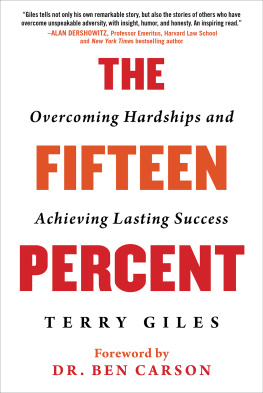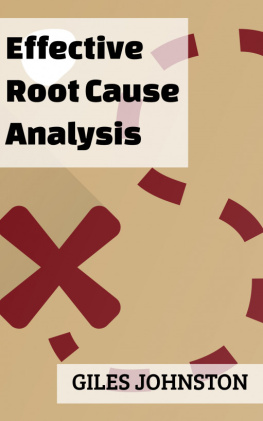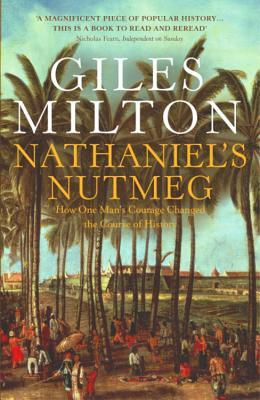


Copyright 2020 by Terry Giles
All rights reserved. No part of this book may be reproduced in any manner without the express written consent of the publisher, except in the case of brief excerpts in critical reviews or articles. All inquiries should be addressed to Skyhorse Publishing, 307 West 36th Street, 11th Floor, New York, NY 10018.
Skyhorse Publishing books may be purchased in bulk at special discounts for sales promotion, corporate gifts, fund-raising, or educational purposes. Special editions can also be created to specifications. For details, contact the Special Sales Department, Skyhorse Publishing, 307 West 36th Street, 11th Floor, New York, NY 10018 or .
Skyhorse and Skyhorse Publishing are registered trademarks of Skyhorse Publishing, Inc., a Delaware corporation.
Visit our website at www.skyhorsepublishing.com.
10 9 8 7 6 5 4 3 2 1
Library of Congress Cataloging-in-Publication Data is available on file.
Cover design by Brian Peterson
Print ISBN: 978-1-5107-5833-9
Ebook ISBN: 978-1-5107-5872-8
Printed in the United States of America
To the two most important ladies in my life: My incredible Mom, LaDon Giles Hix, who helped make me who I am and continues to be my guardian angel; and my wife, Kalli OMalley, the most remarkable person I have ever met, who makes me better than I could ever be on my own and has brought the gifts of Lauren and Keller into my life.
Contents
Foreword
By Dr. Ben Carson
America is a great place to live in, even if, like Terry Giles, you grew up on the wrong side of the tracks. In this book, Terry examines and expands upon the principles that lead to success in whatever endeavor one embarks upon.
I first met Terry a quarter of a century ago when we were both inducted at a very young age into the Horatio Alger Society of Distinguished Americans. Many decades ago, Horatio Alger wrote many accounts about the lives of Americans who had rags-to-riches stories. He was such an influential writer that his works contributed to the establishment of the American Dream.
In The Fifteen Percent, Terry uses many examples from his own very successful legal and business careers in which he created many businesses and opportunities for others, to show the reader that attitude, determination, vision, and hard work are invaluable assets for those who refuse to accept failure. He also shows us how fear of failure can be a cause for failure. Even circumstances that seem to scream failure are not always as bad as they seem and, as Terry makes clear, are only part of the puzzle that can eventually manifest overwhelming success.
I can remember times in my surgical career when I was very disappointed with a surgical outcome, but the undesirable outcome led to subsequent success. One such example occurred in 1994, when we attempted to separate conjoined twins in South Africa. The operation was being done under considerably less than optimal conditions, but a fabulous team had been assembled and state-of-the-art equipment and techniques had been imported. It turns out that the twins were symbiotic; one had the kidney function for both, and the other had the heart function for both. We successfully separated them, but the one with no heart function died immediately and the one with no kidney function died days later. Nevertheless, three years later, a set of conjoined twins from Zambia benefited greatly from the previous preparations, and we were ableat the same medical facilityto achieve the first completely successful separation of complexly joined craniopagus twins. They have now finished high school. It would not have happened without the lessons learned in the prior failure. These are the kinds of lessons that Terry repeatedly teaches us in this unique and fascinating book that can empower the reader to define the goal and remain focused on it until it is achieved and then use that success to create the foundation for the next achievement.
The steps can then be repeated endlessly to create a predictable pattern of success. We all can achieve great things, but we must realize that the person who has the most to do with our success is us. Not the circumstances and not other people, but us!
Benjamin S. Carson Sr., M.D.
Professor Emeritus of Neurosurgery, Oncology,
Plastic Surgery, and Pediatrics
Johns Hopkins Medicine
Introduction
A decade or so ago, I served as a lead trial attorney in one of the major sex abuse actions against the Catholic Church. If this sounds grim, it mostly was. Since we had 150 clients (of Californias total of eight hundred), it took several months to work through their voluminous case histories, and eight years to resolve the cases. It was a slog through the lowest depths of human depravity. The particulars of what our clients endured as children were gruesome beyond anything reported in the media, and as morally reprehensible as anything Id experienced, though Id represented some of the nations most notorious murderers. Indeed, as I read on, it was clear that the very term adult survivor was misplaced. In case after case, these individuals were victims of what psychologist Leonard Shengold terms, with pitiless accuracy, soul murder.
The one-on-one meetings only added the human dimension to the grim statistics. Even now, in their twenties, thirties, and forties, having to relive those experiences was for most sheer torment. If not etched on their faces the moment they walked through the door, it soon showed itself in sullen silences, out-of-nowhere bursts of anger, or simply cold defiance. It was ever-present, inescapable. Though we were their allies, we were also authority figures, and if there was one lesson burned into their psyches, it was never to trust one of thosenot a teacher, a cop, a boss, a lawyer, certainly not a priest.
Little wonder that so many had severe drug or alcohol problems, failed in school, or spent time behind bars. What most of us take as the standard markers of normalcyholding a job, sustaining a relationship, a spouse, a familywere impossibly beyond reach. Their lives as functional human beings had been stopped dead by those long-ago horrors. Even the slightest frustration was an insurmountable object to forward movement. For some clients, this case became their life; they called every day. Three of them would commit suicide before we eventually won.
Yetand this is the telling thinga handful among them, perhaps twenty of the 150, stood apart. Not only had they not surrendered to the past, but in surmounting it they discovered a sense of their own power and possibility.
Indeed, early on in the deposition process, I had one of the most memorable encounters of my professional life.
The abuse this particular client had endured was as unspeakably vile as any of the rest. It was all there in his file. He was nine when his father died unexpectedly, the priest presiding over the funeral service afterward seized the opportunity to volunteer himself to the stricken widow as a surrogate father figure for the boy, and the predator was gratefully welcomed into the family home. While the mother cooked dinner, the honored guest would be upstairs molesting her child. It went on for three years. Yet today, in his early forties, he had a postgraduate degree from a highly regarded university; was senior vice president at a prominent San Diegobased electronics company, pulling down more than six figures a year; had been married to the same woman for eighteen years; had two well-adjusted kids, one of whom he coached in little league; and was active in an array of good causes in his community.
Next page














